#eichmann show
Text


Martin Freeman (244/366)
🎬|The Eichmann Show (2015)
Directed
Paul Andrew Williams
Writer
Simon Block
23 notes
·
View notes
Text












THE EICHMANN SHOW | Martin Freeman as Milton Fruchtman
#inspiration for creating gifs was the wonderful a freemaniac#this is the second set of gifs from this film because I can't fit them all into one post and blow up tumblr#I know who tom holland will resemble in a more mature age#I adore this style with a shirt tie and trousers with pleats#martin freeman#the eichmann show#milton fruchtman#mf/movies
43 notes
·
View notes
Text
For me, our most important blog post to date.
The Eichmann Show.
A film that shows the importance of knowledge!
With an additional post showing original trial pictures and Gifs created for this topic by the wonderful @thinwhitedoc

#the Eichmann Show#martin freeman#Anthony LaPaglia#milton Fruchtman#leo Hurwitz#trial#adolf Eichmann#film#bbc
16 notes
·
View notes
Photo
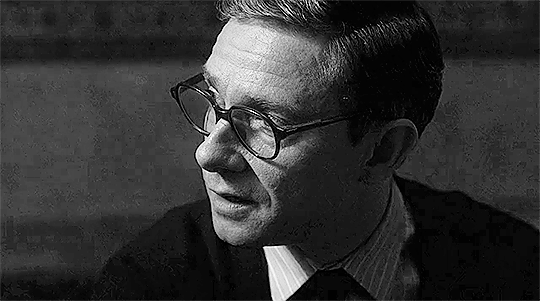

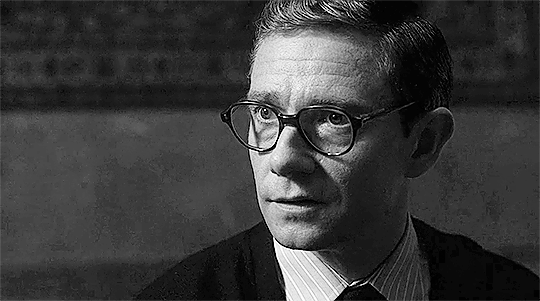

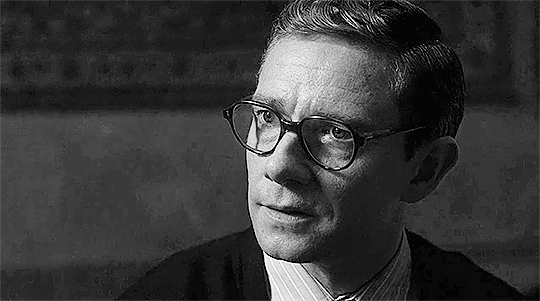
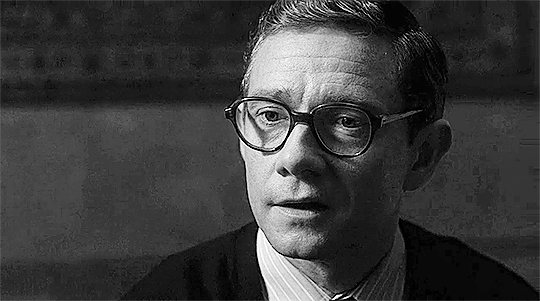
167 notes
·
View notes
Text









Happy birthday, Martin Freeman!! 🥳
53 years old, 53 characters he played.
I finished on time!! But sadly it's not as detailed as i wanted at first. :(
Anyway, if you wanna know who is who, i'll let you all the names under the cut.
From left to right and top to bottom:
Ricky, "Casualty" (1998)
Frank, "I just want to kiss you" (1998)
Jaap, "Lock, stock" (2000)
Jamie, "Men only" (2001)
Ricky-C, "Ali G indahouse" (2002)
D. S. Stringer, "Margery and Gladys" (2003)
John/Jack, "Love, actually" (2003)
Tim Canterbury, "The Office" (2001-2003)
Mike, "Hardware" (2003-2004)
Declan, "Shaun of the Dead" (2004)
Kevin, "Call register" (2004) and "Rubbish" (2007)
Vila, "Blake's Junction 7" (2005)
Arthur Dent, "Hittchiker's guide to the galaxy" (2005)
Ed Robinson, "The Robinsons" (2005)
Matt, "Confetti" (2005)
Sandy, "Breaking and Entering" (2006)
Jeremy, "Dedication" (2007
Gary Shaller, "The good night" (2007)
Sergeant, "Hot Fuzz" (2007)
Pig, "Lonely hearts" (2007)
Chris Ashworth, "The all together" (2007)
Rembrandt van Rijn, "Nightwatching" (2007)
Mr. Codlin, "The old curiosity shop" (2007)
Danny Reed, "Boy meets Girl" (2009)
Chris Curry, "Micro Men" (2009)
Paul Maddens, "Nativity!" (2009)
Hector Dixon, "Wild target" (2010)
John Watson, "Sherlock" (2010-2017)
Clive Buckle, "The girl is mime" (2010)
Alvin Finkel, "Swinging with the Finkels" (2011)
Simon Forrester, "What's your number?" (2011)
Dr. Williams, "The Voorman problem" (2011)
Pirate with a scarf/Number Two, "Pirates!" (2012)
Albert, "Animals" (2012)
Bilbo Baggins, "The Hobbit trilogy" (2012-2014)
Don, "Svengali" (Movie from 2013 and series from 2009)
Oliver Chamberlain, "The world's end" (2013)
Lester Nygaard, "Fargo" (2014)
Milton Frutchman, "The Eichmann show" (2015)
Steve Marriot, "Midnight of my life" (2015)
Iain MacKelpie, "Whiskey tango foxtrot" (2016)
Everett Ross, "Captain America: Civil War" (2016), "Black Panther" (2018), "Black Panther: Wakanda Forever" (2022), "Secret Invasion" (2023)
Phil Rask, "StartUp" (2016-2017)
Michael Priddle, "Ghost Stories" (2017)
Andy Rose, "Cargo" (2017)
Thomas, "The operative" (2019)
Charlie Green, "Ode to joy" (2019)
Stephen Fulcher, "A confession" (2019)
Paul Worsley, "Breeders" (2020-2023)
Harold Wallach, "Angelyne" (2022)
Chris Carson, "The responder" (2022-2024)
Jonathan Miller, "Miller's Girl" (2024)
Richard III, from the theather play with the same name. (2014)
#martin freeman#ricky c#tim canterbury#arthur dent#rembrandt#paul maddens#hector dixon#bbc john watson#bilbo baggins#oliver chamberlain#lester nygaard#iain mackelpie#everett ross#phil rask#michael priddle#paul worsley#chirs carson#jonathan miller#richard iii
89 notes
·
View notes
Text
Okay I have to say it.
Will, Ada and Montresor did something way worse than Annabel Lee.
Why? Because motive matters. Now don't get me wrong, a good motive cannot justify an inherently evil action, it however matters more and more when going deeper into more morally grey areas.
Annabel has made it very clear she understands these people, including Duke to be damned regardless of her actions and basically sees herself confronted with a trolley problem that goes: "You, your wife and like X other people are bound to rails. A trolly will run over all but one of you. However if you pull just the right levers, both you end your wife will survive. The first lever you must pull is on Duke." While this doesn't make her actions noble, it gives them a noble cause and one could argue in several ways that she's acting within a moral grey area if we take the situation to be as unshakable as it seems. To make to examples, one could argue in an utalitarian way (this saves more lives than the other option) or in a very human way (this saves a loved one at the cost of a soon to be dead man, who could blame her?). There are also concepts of morality that would condemn her, like for example the categoric imperative or Jewish or Christian (and I think Muslim) religion, in which it is inherently bad to kill a single person even to safe thousands of others.
Annabel considers killing Duke a necessary evil.
Montresor however is acting out of pure sadism and spite and he puts on quite a show to make this clear. He had done so even if he believed everyone would get a happy end and he is having the time of his life killing Duke. That is picture book chaotic evil behaviour right there and by no means redeemable.
Will and Ada? Arguably worse than Montresor, at least not a bit better. This is the kind of stuff that makes large scale modern genocides possible. Hannah Ahrendt (great woman, you should look her up) argues in her book "Eichmann in Jerusalem: A Report on the Banality of Evil" that evil at its worst is not some kind of demonic evil like it has been preached in medieval times, but lays within the sheer banality of an office worker casually doing the phone calls and paper work necessary to send thousands to their certain death, while the office worker goes back home, eats dinner with his family and thinks "I'm just doing my job. It's my supervisors moral responsibility, not mine."
Ada and Will tried to kill for no other reason than because they have been told to do so and the lack of willingness to accept responsibility really shows in their actions afterwards. So I am a bit confused when I see people arguing how terrible Annabel Lee is while defending the "poor boy Will".
So, controversial opinion: in this very specific case, even though Annabel Lee either started this or at the very least didn't stop it when she clearly could have, she hasn't committed anything as immoral as her henchmen committed, who did not even need a motive to kill.
Also I would every day prefer an Annabel Lee willing to kill Duke to safe her wife in the long run over an Annabel Lee that prefers to not be a controversial female character. Let's not forget these people don't actually exist.
#nevermore webtoon#annabel lee whitlock#montresor nevermore#will nevermore#ada nevermore#annabel lee#annabel lee nevermore#annabel nevermore#nevermore
222 notes
·
View notes
Note
What's your take on this idea? I'm struggling with the execution.
Good and Evil are actual entities/personifcations, not characters simply representing them.
These two get separated - split into two worlds. The plot is to reunite them and restore balance.
But I don't want to get stuck with a Utopian Society, or Dystopian...
I just hate the idea of a world that's overly light and good or overly dark and evil. But if Evil is absent, then how can it exist in Good's world?
Is there anyway to work with this or should I discard Good and Evil as characters entirely?
Story Ideas for Good vs. Evil Societies
Hey there! Sorry for the long wait and no, your question was safely in my inbox :)
Here are some ideas about how you can introduce Evil back into the land of the Good
Good and Evil as Parallel Universes
I'll just throw some ideas for linking the good and evil worlds structually. These ideas assume that although Good and Evil were separated, they can never truly stand on their own.
When someone evil pops up in the good world, they are immediately whisked away to the land of the Evil through some sort of magic. One day, this magic stops working.
Good and Evil are actually parallel universes with the exact same people, economy, buildings, etc. The only difference is that Person A in the Good world will always make the right decisions while Person A' in the Evil world will make the bad ones. So, people in the good world doesn't know hardship or failure, and they lead a relatively boring life (they will ALWAYS choose to eat salad rather than cholocate cake for dinner, how boring is that?). Evil "creeps in" to the good world when a person chooses to eat...(gasp)...a whole pack of Oreos at midnight.
The way this "separation" works is Good and Evil divides the newborns entering the world by foreshadowing their predetermined fates. One day, a baby is born and none of them can see their future...would this baby grow up to be a saint or murderer?
Bad As the Shadow of Good
Shadows and darkness are long-standing analogies for the evil. So the "Good" world is the world in the light, while shadows are in fact the world of the Evil, living a life of their own (think your shadow moving and having a life of its own).
The Light World and Shadow world don't mix (You can't touch or hug your shadow, right? Your shadow cannot harm you physically)
The Shadows and Light People can't talk to each other
A woman falls in love with a Shadow man and she somehow manages to give him a proper body rather than being a shadow on the wall...what next?
None of the people in the "Good World" have shadows, which means they are transparent (think Invisible Man). Now, one of them happens to figure out that if they get a shadow, they can see themselves in the mirror...
Twisting the Concepts of Good and Evil
How do you define good and evil? The yardsticks of morality have changed with time and cultural development, and it truly isn't easy to draw a clear line on what each of your societies would have.
Instead, try working with other concepts of good and evil.
Good = Love for self and others vs. Bad = No Love. The "Bad" society will comprise of people who have no love whatsoever, not even for themselves. Thus, all of them would end up committing suicide. When a child is born, Good and Evil can foresee how the child would die - if they're destined for suicide, Evil takes the child. When the two worlds are combined, the good people bring love into the lives of those who had none. Problem solved and balance restored.
The Banality of Evil. This concept is based on Hannah Arendt's book, Eichmann in Jerusalem. She argued that the average person is capable of horrible deeds if they don't "think for themselves" and "mindlessly follow instructions" of bad leaders like Hitler. You can show a world where Evil rules over such mindless people who does anything Evil will say while people in the Good world will act under their own values.
Good = Balance. Evil = No balance. This is based on Virtue Ethics. The sheer fact that there is no balance is in fact a bad thing. Thus, Good will lead its people to strike a balance between two values while Evil would encourage his people to always do too much of everything.
I hope this helps!
─── ・ 。゚☆: *.☽ .* . ───
💎If you like my blog, buy me a coffee☕ and find me on instagram!
💎Before you ask, check out my masterpost part 1 and part 2
💎For early access to my content, become a Writing Wizard
#writing#writers on tumblr#writeblr#poets and writers#creative writing#helping writers#let's write#resources for writers#creative writers#writers and poets#writing process#writing prompt#writing inspiration#writing community#writing ideas#writing advice#writer#writer stuff#on writing#writer on tumblr#writer things#writer problems#writer community#writerscommunity#writblr
40 notes
·
View notes
Text
Amin al-Husseini docu: part 7
Part 1 | Part 2 | Part 3 | Part 4 | Part 5 | Part 6 | Part 7 | Part 8 | Last
Translator's notes:
-> Auschwitz as a camp was huge, bigger than most cities. It was built in parts. The initial, concentration camp was built close to (and was named after) the Polish town of Oświęcim, called in German Auschwitz. It was later expanded, too. The extermination camp, centered around the gas chambers, was built in 1942, and by that point, the entire camp's area was so big, that this part was closer to (and named after) the Polish town of Brzezinka, called in German Birkenau. The concentration camp part was nicknamed Auschwitz I, the extermination camp part was Auschwitz II, Auschwitz-Birkenau, or just Birkenau. There was also an area known as Auschwitz III, where the factories using (mostly Jewish) slaves were.
-> The Sonderkommando were Jews who had been forced by the Nazis to operate the gas chambers. They were often selected based on being less able to communicate the horrors they'd seen to other Jewish slaves in the camp, for example many of the Sonderkommando were Greek Jews (while most European Jews were Ashkenazim, who shared the common Jewish language of Yiddish, the majority of Greek Jews were Sephardim, and spoke the Jewish language of Ladino. Thus, communication between the two groups was harder). Even when the Sonderkommando were physically capable of going on with their work, the Nazis would routinely exterminate them, to wipe out the witnesses of this industrialized genocide. My wonderful colleague, who you see interviewed in this docu, Professor Gideon Greif, in addition to writing one of the most comprehensive books about Auschwitz, also recorded the testimonies of the last surviving Sonderkommando, and published them in an emotionally difficult to read, but really important book, titled We Wept Without Tears. The photograph of Shaul Chazan, one of the last sonderkommando, is from a 1993 trip to Auschwitz, where Prof. Greif recorded a few of the testimonies, as they were being given in the place they were about. This docu has now been translated into English. The book was also the basis for the Oscar-winning film, Son of Saul.
-> The Capo was a camp slave, who was appointed by the Nazis to "supervise" a group of other camp slaves. In Nazi camps where regular criminals were incarcerated together with non-criminal groups, such as Jews, the Capos were often the former, because a part of the idea behind using the Capos was to implement a "divide and rule" system, meaning the less empathy the Capo had for those under his "supervision," the better. Some Capos did what the Nazis told them to out of fear, some enjoyed their new status and were abusive to their fellow camp slaves, and some Capos tried to use the position in order to help, even save, other slaves. I'm detailing this, because there's a misconception that all Capos were traitors.
-> Dieter Wisliceny was directly responsible for the murder of over 106,000 Jews from Slovakia and Greece alone (and he helped Eichmann with the extermination of over 500,000 Hungarian Jews, too). He was arrested by the Americans and NOT put on trial at Nuremberg. Wisliceny was eventually brought to justice by Czechoslovakia, which demanded his extradition.
-> I hope it's okay to add something personal, because the docu briefly shows a translation of a letter written by the Mufti to the Romanian Foreign Minister. My great uncle is Jewish Romanian author and Holocaust survivor, Norman Manea. He wrote about a part of what my family's been through because of the collaboration between the Nazis and the Romanians, as the Jews from eastern Romania were exiled to Transnistria by the hundreds of thousands to die there, in his memoir (which was translated into English), The Hooligan's Return. I have pictures of starved Jewish kids in Transnistria, their bodies look like skeletons everywhere, except their swollen bellies (a now known symptom of starvation). I don't bring these pictures to the museum, unless I have reason to believe I may have Holocaust deniers in the group, the pics are that terrible to me. Among the rescue attempts of Jews, the Mufti stopped a plan to save 80,000 Jews from Romania, and 5,000 Romanian Jewish kids exiled to Transnistria. I can't explain how I feel about that. He never paid for his crimes, they're not even recognized, but then the anti-Israel crowd screams that this is all about "the occupation," even though the State of Israel didn't even exist during WWII, when the Mufti sentenced to death a part of my people, a part of my community, and maybe even a part of my family.
(for all of my updates and ask replies regarding Israel, click here)
#israel#antisemitism#israeli#israel news#israel under attack#israel under fire#terrorism#anti terrorism#hamas#antisemitic#antisemites#jews#jew#judaism#jumblr#frumblr#jewish#israelunderattack#al-husseini#ישראבלר
37 notes
·
View notes
Text
The number of Jewish actors playing Nazis in Hogan’s Heroes is perpetually a delight. These men must have had so much fun making the Nazis as pathetic and ridiculous as possible. The three Nazis here are all Jewish actors.
youtube
(Klemperer’s condition for remaining as Klink was that if Klink were every to be allowed to win, he would quit and never look back.)
And then I remember why they portrayed these characters with such viciousness:
The actors who played the four major German roles—Werner Klemperer (Klink),[16] John Banner (Schultz), Leon Askin (General Burkhalter), and Howard Caine (Major Hochstetter)—were all Jewish. In fact, Klemperer, Banner, and Askin had all fled the Nazis during World War II (Caine, whose birth name was Cohen, was an American). Robert Clary, a French Jew who played LeBeau, spent three years in a concentration camp (with an identity tattoo from the camp on his arm, "A-5714"); his parents and other family members were killed there. Likewise, Banner had been held in a (pre-war) concentration camp and his family was killed during the war. Askin was also in a pre-war French internment camp and his parents were killed at Treblinka. Other Jewish actors, including Harold Gould and Harold J. Stone, made multiple appearances playing German generals.
As a teenager, Klemperer, the son of conductor Otto Klemperer, fled Hitler's Germany with his family in 1933. During the show's production, he insisted that Hogan always win against his Nazi captors, or else he would not take the part of Klink. He defended his role by claiming, "I am an actor. If I can play Richard III, I can play a Nazi." Banner attempted to sum up the paradox of his role by saying, "Who can play Nazis better than us Jews?" Klemperer, Banner, Caine, Gould, and Askin had all spent the real Second World War serving in the U.S. Armed Forces—Banner[17] and Askin in the U.S. Army Air Corps, Caine in the U.S. Navy, Gould with the U.S. Army, and Klemperer in a U.S. Army Entertainment Unit. Klemperer had previously played a Nazi: in 1961 he played captured Nazi Emil Hahn in Judgment at Nuremberg, and also in 1961 starred as the title character in the serious drama Operation Eichmann, which also featured Banner in a supporting role.
152 notes
·
View notes
Text
In the 1950s, a dramatic court case in Israel revealed that the Zionists had acted with criminal neglect—if not outright complicity—in the destruction of Hungarian Jewry. Evidence produced at the trial showed that Rudolph Kastner, a top official in the Israeli Labor Party and the person in charge of the Rescue Committee in Hungary during the war, had actively collaborated with the Nazis. Kastner negotiated with Nazi official Adolph Eichmann (one of the architects of the Holocaust) to get approval for a “VIP train” of 1,685 Hungarian Jews to leave Hungary safely. Kastner personally selected the passengers for the train, which included several hundred people from his hometown and a dozen members of his family. He worked with SS officer Kurt Becher to make the financial arrangements. In exchange for the safe passage of the train, Kastner agreed not to warn the Jews of Hungary (whose rescue was in his hands) about Hitler’s plans for their extermination and not to take any action to protect them. Worse, he helped to deceive Hungarian Jews, convincing them that they were simply being relocated.
-- Palestine: A Socialist Introduction
20 notes
·
View notes
Text














THE EICHMANN SHOW | Martin Freeman as Milton Fruchtman
#inspiration for creating gifs was the wonderful a-freemaniac#I must say it's a heavy film and martin is amazing in it#I'm holding back from screaming at the sight of wet martin#and what wonderful outfits he has in this film#martin freeman#milton fruchtman#the eichmann show#mf/movies
38 notes
·
View notes
Text
Blog preview:
On Monday we will talk about the most important thing:
Remembrance!
With bonus material especially made for us.
Made by @thinwhitedoc

12 notes
·
View notes
Photo
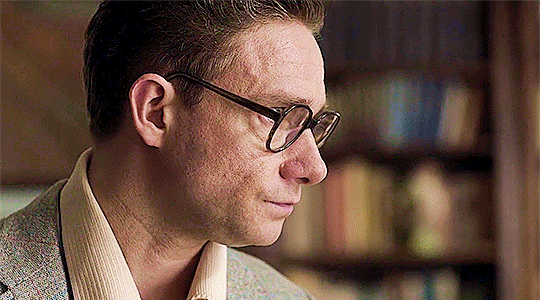
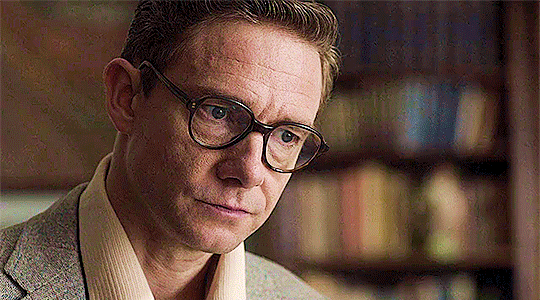
108 notes
·
View notes
Text









Happy birthday, Martin Freeman!! 🥳
53 years old, 53 characters he played.
I finished on time!! But sadly it's not as detailed as i wanted at first. :(
Anyway, if you wanna know who is who, i'll let you all the names under the cut.
From left to right and top to bottom:
Ricky, "Casualty" (1998)
Frank, "I just want to kiss you" (1998)
Jaap, "Lock, stock" (2000)
Jamie, "Men only" (2001)
Ricky-C, "Ali G indahouse" (2002)
D. S. Stringer, "Margery and Gladys" (2003)
John/Jack, "Love, actually" (2003)
Tim Canterbury, "The Office" (2001-2003)
Mike, "Hardware" (2003-2004)
Declan, "Shaun of the Dead" (2004)
Kevin, "Call register" (2004) and "Rubbish" (2007)
Vila, "Blake's Junction 7" (2005)
Arthur Dent, "Hittchiker's guide to the galaxy" (2005)
Ed Robinson, "The Robinsons" (2005)
Matt, "Confetti" (2005)
Sandy, "Breaking and Entering" (2006)
Jeremy, "Dedication" (2007
Gary Shaller, "The good night" (2007)
Sergeant, "Hot Fuzz" (2007)
Pig, "Lonely hearts" (2007)
Chris Ashworth, "The all together" (2007)
Rembrandt van Rijn, "Nightwatching" (2007)
Mr. Codlin, "The old curiosity shop" (2007)
Danny Reed, "Boy meets Girl" (2009)
Chris Curry, "Micro Men" (2009)
Paul Maddens, "Nativity!" (2009)
Hector Dixon, "Wild target" (2010)
John Watson, "Sherlock" (2010-2017)
Clive Buckle, "The girl is mime" (2010)
Alvin Finkel, "Swinging with the Finkels" (2011)
Simon Forrester, "What's your number?" (2011)
Dr. Williams, "The Voorman problem" (2011)
Pirate with a scarf/Number Two, "Pirates!" (2012)
Albert, "Animals" (2012)
Bilbo Baggins, "The Hobbit trilogy" (2012-2014)
Don, "Svengali" (Movie from 2013 and series from 2009)
Oliver Chamberlain, "The world's end" (2013)
Lester Nygaard, "Fargo" (2014)
Milton Frutchman, "The Eichmann show" (2015)
Steve Marriot, "Midnight of my life" (2015)
Iain MacKelpie, "Whiskey tango foxtrot" (2016)
Everett Ross, "Captain America: Civil War" (2016), "Black Panther" (2018), "Black Panther: Wakanda Forever" (2022), "Secret Invasion" (2023)
Phil Rask, "StartUp" (2016-2017)
Michael Priddle, "Ghost Stories" (2017)
Andy Rose, "Cargo" (2017)
Thomas, "The operative" (2019)
Charlie Green, "Ode to joy" (2019)
Stephen Fulcher, "A confession" (2019)
Paul Worsley, "Breeders" (2020-2023)
Harold Wallach, "Angelyne" (2022)
Chris Carson, "The responder" (2022-2024)
Jonathan Miller, "Miller's Girl" (2024)
Richard III, from the theather play with the same name. (2014)
#martin freeman#ricky c#tim canterbury#arthur dent#rembrandt#paul maddens#hector dixon#bbc john watson#bilbo baggins#oliver chamberlain#lester nygaard#iain mackelpie#everett ross#phil rask#michael priddle#paul worsley#chirs carson#jonathan miller#richard iii
7 notes
·
View notes
Note
Crowley's flaws: I think Gaiman accidentally wrote himself into a hole that he either doesn't see or doesn't know how to escape, and he fell into the hole when he decided to turn what was a political allegory into a psychologized relationship issue. Pratchett's understanding of evil is rooted in post-WWII thinking about totalitarianism, in which unthinkable acts are perpetrated by bureaucracies staffed by "normal" people, and resistance comes from individuals who become aware of what this routinization really conceals. This is consistent across the Discworld novels, not just GO. What GO does is take this point and filter it through C. S. Lewis' THE SCREWTAPE LETTERS (the hell-as-bureaucracy model, which NG and TP then extend to Heaven). In the novel, there's a direct line from Crowley's "hung out with the wrong people" to the moment at the airfield when he tries to reject Aziraphale's claim that they're both responsible for the mess the humans are in because they were "only doing our jobs." That's a textbook example of what we now call the Nuremberg defense ("just following orders/just doing my job"). The fandom loves romanticizing this aspect of Crowley's character--he has trauma! he's a proto-Marxist with demonic class consciousness!--but when Crowley busts out this kind of reasoning, he gives way to /evil/, just as Aziraphale does when he tries to justify the ways of Heaven to himself. Any fan who wants to be uncomfortable ought to read Hannah Arendt's EICHMANN IN JERUSALEM and then go back and look at Crowley's dialogue again, because boy howdy. But when it comes to their relationship, the transgression is not /personal/.
In the series, the political allegory has vanished, and the direct line runs from Crowley's "it's not my fault" to manipulating Aziraphale into killing the Antichrist. So far, so good, sort of? Gaiman had to remind the fandom that we aren't supposed to buy Crowley's excuses, all of which are bad. He's called out on the "why me" bit three times in the first episode alone. But by the end, there is no sign that Aziraphale understands that he has been manipulated, and no sign that Crowley understands that he did something wrong! The moral epiphany Crowley had in the novel vanishes, so we are left with a nasty /personal/ transgression that neither character understands as such. Aziraphale, by contrast, keeps owning up to his mistakes (at the bar, to Adam during the timestop, on the park bench). Part of this has to do with comedy and its lack of object permanence, so to speak. However, instead of facing up to the conflict it's created for itself, the series drops the whole thing like a Hellfire-hot potato, and so appears to conclude that there's nothing wrong when one character repeatedly takes advantage of another one's gullibility, sometimes in destructive ways. The question is to what extent the new writer has any opinions about this, or even notices.
i have no words........ 👀 a very interesting and thought-provoking take. i dig it. i never thought to look at the tonal comparison of the book vs. the show but this is... eye-opening. yes. YES. (and this doesn't mean that the characters nor the story are unlikeable. it means they have depth but that depth sinks into murky, terrifying, bottomless oceans just as much as clear, shiny, crystal-like reefs). YES.
also anon if you are comfortable pls message me direct i just wanna give u a lil virtual kiss a lil smooch✨
#good omens#good omens season 2#good omens spoilers#good omens 2 spoilers#i know a fair bit about ww2 socio-politics so im actually going to screenshot this and study it later but#oh man#this is a Something Else post#nonnie you have an acute and sharp mind god bless you#i love this i live for it#YUMMY. FUCKING. SOUP🍲#also my analogy is SHITE but mea culpa i am trying to work at the same time as this#not a shitpost but its good omens babyyyy#ask#the legend of the longwinded anon✨
55 notes
·
View notes
Text
Theory about the MILGRAM prison
(working on this when I'm supposed to be studying for my psychology exam lol)
(i count this as studying for my a-levels, sue me)
Trigger Warning: WWII Germany mention, war crimes mention
One of the questions I keep coming back to is why the prison and the project is called Milgram. The experiment that Stanley Milgram was famous for, his obedience experiment, had more to do with the study of the banality of evil (that was partly his motivation to perform the experiment in the first place) and human obedience for an authority figure than criminal behaviour. What he studied was the willingness of people to obey instructions, even when doing inhumane acts such as administering increasingly lethal shocks to someone who failed a question in a word quiz. This was actually in attempt to investigate whether N@zi Germans in concentration camps/prisons/whatever and such were pure evil or just following orders because they're 'more obedient than other races of people'. He and his colleagues wanted to explain the inhumane acts done during the holocaust, basically, inspired by the criminal trial of Adolf Eichmann (i think thats the name?) about 3 months before the experiment was conducted. Of course, with a bias for Americans.
He and his colleagues predicted that less than 3% of participants would actually administer up to 450 volts to the learner (who was a confederate, i.e. fake. the initial information that participants received was that they were there to help with a psychology experiment on memory:

they would then stage a chance drawing of who would be the 'teacher' (the participant) and the 'learner' (the confederate). the participant was always the teacher. they were then separated so the participant can hear the learner, but can't see them. they were given instructions to administer shocks to the learner if they got the wrong answer, which was made to be frequent-ish. it starts of at 15, then 30, then alll the way up to 450 volts. The shocks were fake, but it would sound like, to the participant, that the learner in the other room was actually experiencing electrical shocks. Re-creation of the study later on used a standardised recording of the learner responding to the fake shocks, then silence, as if to indicate that the learner has passed out.)
Actual results? Every single participant in the baseline procedure administered up to 300 volts. 65% of participants continued up to 450 volts.
The results may be affected by the scientist in the room, which, when faced with apprehension or unwillingness by the participant to continue, will say the following things:

Theoretically, participants should feel free to stop and withdraw from the experiment at any time. Reality? the prompts above literally pressured into continuing to increase the voltage, regardless of if they said they wanted to withdraw. Imagine:
"I- I don't feel comfortable doing this. This is wrong."
"Please continue."
"But- this is wrong! He's hurt, will he be okay?"
"The experiment requires that you continue."
(disclaimer: dialogue is fake, i made it up from watching documentaries and recordings(?) of future attempts to reconduct the study. (i.e. based on what the teacher made me watch in class lol))
And so on and so forth. A lot of participants' attempts to withdraw were met with a sound 'no'. I'd say that going through the experiment itself is traumatic all by itself.
So what does this mean for the Milgram Project?
Honestly, I can only guess that, in a way, it shows how willing most of us are to go along with this extremely inhumane premise. Imagine that the prisoners are real people - well this kind of experiment would get absolutely blasted by any ethics board, and the prisoners would be subject to the Japanese criminal justice system and all that. But imagine somehow passed ethics boards and such. And, instead of the judge being internet people who can discuss and judge freely, it is people who are physically there to be the judge, jury and executioner. The information and experience will be repeated for every participant, every fan of the project. The chances of those of us who will call this kind of prison out drastically decreases, for various reasons. Some of Milgram's participants said that their willingness to go along with the study was because they thought the whole thing was 'play-acting'.
And this scenario is exactly what Es is subjected to. They only know to follow the rules of Milgram, because like the participants in Milgram's obedience study, they can't withdraw. They can't get out. They can only complete the objective they were given, because that's the only way this experiment would end. Jackalope is the scientist in the room in this analogy: they keep Es obedient, keep Es from questioning.
And, like the 'learner' in the original experiment, the prisoners are there to distract us and Es from the true aim of the experiment: to what end will we be jackalope's little obedient doll?
then again, I can be completely wrong. I got distracted from studying. (this counts as studying right????)
#then again i can be completely wrong#arc rubbing their last 2 brain cells together to form a thought#it got meta#tw: war crimes mention#milgram#es milgram#milgram project#milgram theory
19 notes
·
View notes